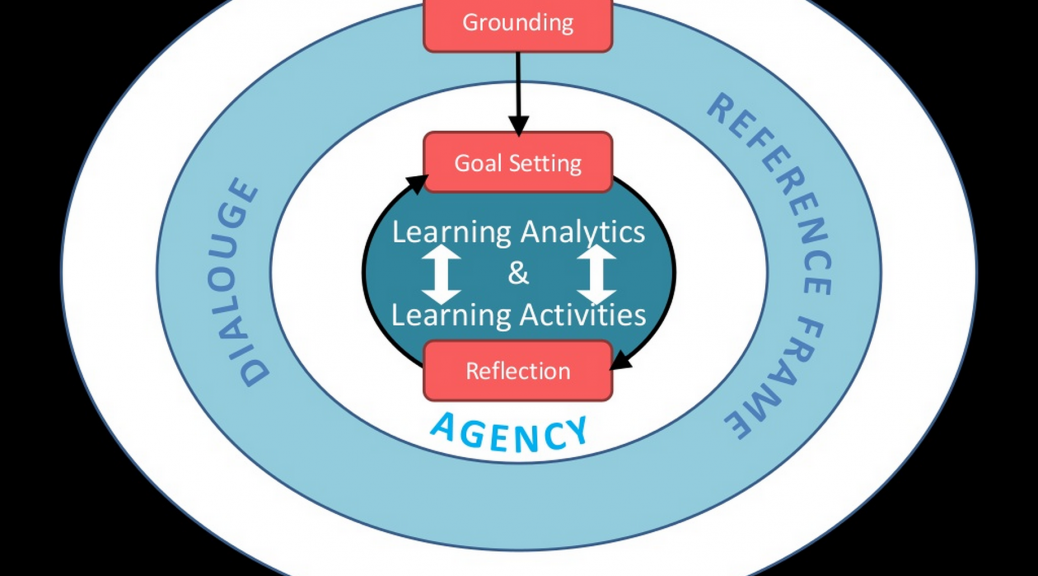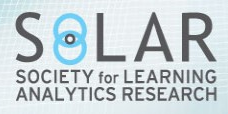November 17, 2014 | 12:00pm – 1:30pm
Speaker: Alyssa Wise (Simon Fraser University)
Abstract:
Learning analytics are data traces of student activity that can be used to better understand and support learning processes and outcomes. Over the last few years there have been remarkable advances in our ability to calculate and display useful information about what students are doing. Now, we face the important challenge of how to mobilize this intelligence to have a meaningful impact on university teaching and learning. To do so, we need to consider and design for the ways in which learning analytics can become a part of (and change) the activity patterns of instructors and students. Working within the scope of the university course, I describe ways to integrate learning analytics into teaching and learning processes by using data-informed reflection to probe the connections (and disconnects) between instructors’ and designers’ pedagogical intents and students’ actual activity patterns. Particular attention will be paid to roles for students in the process, and the use of different reference frames for data interpretation. To ground the discussion, work from the E-Listening Project at Simon Fraser University will be presented as an initial example of a learning analytics application developed and implemented in a university course using such an integrated approach.
Presentation Slides
Speaker Bio:
 Alyssa Friend Wise is an Associate Professor with the Educational Technology & Learning Design Program at Simon Fraser University in Canada. Her research examines how people interact with each other through technologies and how such interactions can contribute to learning. Recent work includes the E-Listening Project (research into how participants attends to others’ comments in online discussions), the development of Youtopia (a collaborative table-top game about sustainability issues), and the creation of a model for Learning Analytics Interventions (a pedagogical approach to help students work with data collected on their learning as part of the educational process).
Alyssa Friend Wise is an Associate Professor with the Educational Technology & Learning Design Program at Simon Fraser University in Canada. Her research examines how people interact with each other through technologies and how such interactions can contribute to learning. Recent work includes the E-Listening Project (research into how participants attends to others’ comments in online discussions), the development of Youtopia (a collaborative table-top game about sustainability issues), and the creation of a model for Learning Analytics Interventions (a pedagogical approach to help students work with data collected on their learning as part of the educational process).


 Ryan Baker is Associate Professor of Cognitive Studies at Teachers College, Columbia University. He earned his Ph.D. in Human-Computer Interaction from Carnegie Mellon University. Dr. Baker was previously Assistant Professor of Psychology and the Learning Sciences at Worcester Polytechnic Institute, and served as the first technical director of the Pittsburgh Science of Learning Center DataShop, the largest public repository for data on the interaction between learners and educational software. He is currently serving as the founding president of the International Educational Data Mining Society, and as associate editor of the Journal of Educational Data Mining. His research combines educational data mining and quantitative field observation methods to better understand how students respond to educational software, and how these responses impact their learning. He studies these issues within intelligent tutors, simulations, multi-user virtual environments, and educational games.
Ryan Baker is Associate Professor of Cognitive Studies at Teachers College, Columbia University. He earned his Ph.D. in Human-Computer Interaction from Carnegie Mellon University. Dr. Baker was previously Assistant Professor of Psychology and the Learning Sciences at Worcester Polytechnic Institute, and served as the first technical director of the Pittsburgh Science of Learning Center DataShop, the largest public repository for data on the interaction between learners and educational software. He is currently serving as the founding president of the International Educational Data Mining Society, and as associate editor of the Journal of Educational Data Mining. His research combines educational data mining and quantitative field observation methods to better understand how students respond to educational software, and how these responses impact their learning. He studies these issues within intelligent tutors, simulations, multi-user virtual environments, and educational games.
